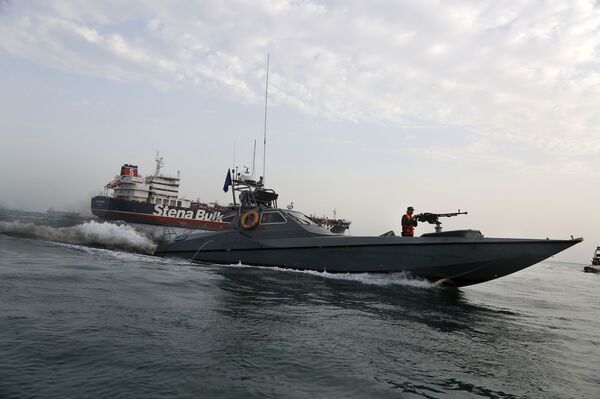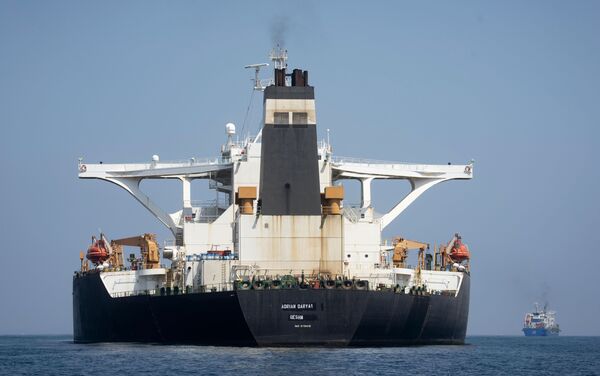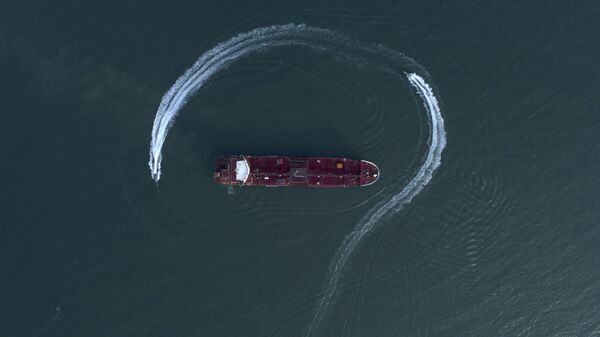UK’s First Sea Lord and Chief of Naval Staff Tony Radakin said that Iran’s threat to British shipping “hasn’t gone away” in the Gulf following the detention of the now released British-flagged oil tanker, the Stena Impero, in the Strait of Hormuz by Iran in July this year.
Speaking to BBC for the first time since being promoted to the professional head of the Royal Navy, Radakin stressed that the UK wanted to “de-escalate” tensions with Iran but currently decided to maintain an increased military presence in the Gulf region. The Royal Navy has added the destroyer HMS Defender to its HMS Montrose frigate, already stationed in the region since the July crisis.
“We have to react when a nation is as aggressive as Iran was”, Admiral Radakin said upon his visit to the region, as quoted by BBC. “It was an outrageous act that happened on the high seas and that's why we have responded the way that we have”.
The head of the Royal Navy also insisted that Britain would continue to participate in the US-led coalition “Operation Sentinel” in the Gulf, despite not endorsing the Trump administration’s policy on Iran. Admiral Radakin also cast away the option to join France-initiated European operations in the region, while saying that although he welcomed the initiative, there were “practical reasons” for London to remain part of the Washington-led maritime coalition.

The tensions between London and Tehran dramatically increased this summer after British cargo tanker, the Stena Impero, was detained by Iran’s Islamic Revolutionary Guard Corps in the Strait of Hormuz on 19 July 2019. The ship was accused of ramming a small Iranian fishing vessel, ignoring the instructions of local maritime traffic authorities, and turning off its transponder, all allegations that were denied by UK authorities, which accused Iran of engaging in “piracy”.
Seven of the ship’s 23 crew members were released in September and left Iran, while the remaining sailors remained on board so that the ship could leave the port. Stena Impero arrived to Dubai in the end of September after two months of detention in the Islamic Republic.

The tanker’s detention was preceded by the interception and seizure the Iranian oil tanker the Grace 1, also known as the Adrian Darya 1, that was detained by UK marines in Gibraltar on 4 July. British authorities said that they were tipped off by the US, that Iranian ship was carrying its cargo to Syria, thus violating EU sanctions imposed on Damascus. Tehran deemed the move an act of "piracy" at that time and demanded an immediate release of the ship. Although it was liberated several weeks later by Gibraltarian authorities notwithstanding US pressures to continue the seizure, and the issuance of a US warrant to detain the ship, the tanker saga was believed to bring British-Iranian diplomatic relations to a decades-long low.


